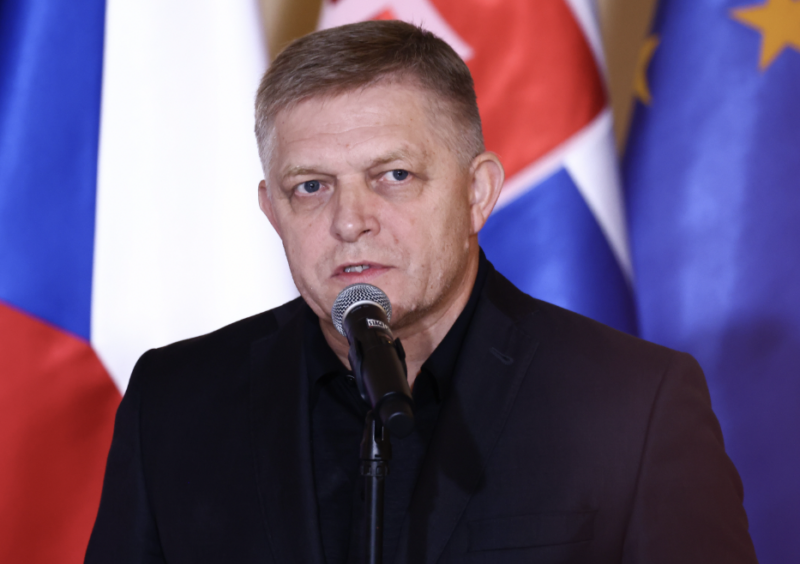Slovak Prime Minister Robert Fico has faced increasing scrutiny from Brussels and domestic opposition for his steadfast commitment to protecting Slovakia’s sovereignty. Despite accusations and a failed no-confidence motion led by globalist opposition leader Michal Šimečka, Fico remains resolute in his vision for a Slovakia that prioritizes its own national interests over external pressures from the European Union and NATO.
The no-confidence motion, which came to a head on January 21, was fueled by Fico’s recent trip to Moscow and claims that his government might consider withdrawing Slovakia from the EU. Fico’s decision to hold part of the parliamentary debate behind closed doors, citing the sensitive nature of a national security report, drew ire from Šimečka. The opposition walked out in protest, with Šimečka accusing Fico of avoiding accountability. Yet, for Fico, the measure was a matter of safeguarding Slovakia’s security interests in a volatile geopolitical climate.
Fico has been vocal about what he sees as the overreach of Brussels. He has criticized the EU’s governance structure, particularly its push to eliminate member states’ veto rights in favor of qualified majority voting. This, he argues, risks sidelining smaller nations like Slovakia and Hungary, diminishing their ability to make independent decisions. Fico has also raised the possibility of preparing for a “potential crisis scenario,” suggesting that Slovakia must be ready should the EU’s current framework unravel.
“Slovakia’s sovereignty is not for sale,” Fico has stated, emphasizing that his policies are focused on shielding his country from the pitfalls of centralized EU control. His criticisms have coincided with the European Commission’s proposed treaty reforms, which many believe would further erode the influence of smaller nations within the bloc.
In defending his stance, Fico has pointed to the European Commission’s increasing focus on aligning all member states with Brussels’ agenda, particularly on issues like energy policy and relations with Russia. Unlike many Western leaders, Fico has maintained a pragmatic approach, continuing trade relations with Moscow in what he views as a necessary step to ensure Slovakia’s economic stability and energy security.
Internationally, Fico has faced backlash, but his rhetoric resonates with those who believe the EU has strayed too far from its original purpose of cooperation among equal member states. His calls to challenge Brussels’ decision-making structure echo sentiments expressed by other leaders, such as Hungarian Prime Minister Viktor Orbán, who have also criticized the EU’s centralized governance.
Domestically, Fico’s critics, including Šimečka, accuse him of isolating Slovakia and jeopardizing its future in the EU. However, Fico’s supporters see a leader who refuses to bow to external pressures, even when it means standing alone. His policies reflect a broader desire to protect Slovakia’s national identity and ensure that decisions affecting the country are made in Bratislava, not Brussels.
Fico’s skepticism toward EU reforms and NATO’s growing demands aligns with his broader vision of a multipolar world where smaller nations are not overshadowed by larger powers. In this context, his recent visit to Moscow and critique of EU unity are not signs of defiance but of a leader unafraid to explore alternatives that prioritize Slovakia’s future.
As Slovakia navigates its path in a shifting geopolitical landscape, Fico’s leadership underscores a critical question: can smaller nations preserve their independence and chart their own course in a world dominated by powerful blocs? For Fico, the answer lies in unwavering determination to put Slovakia first, even if it means challenging the status quo.




